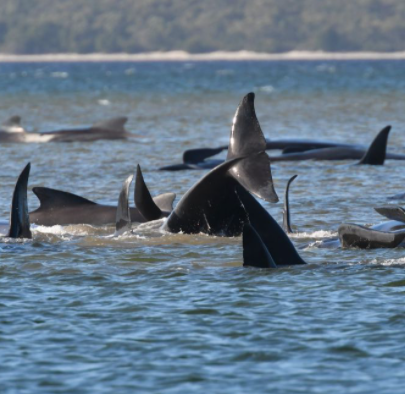Whale checks surveyed
 Just weeks after a mass-stranding of whales on a Tasmanian beach, experts have provided tips on how to assess a beached whale’s health.
Just weeks after a mass-stranding of whales on a Tasmanian beach, experts have provided tips on how to assess a beached whale’s health.
A recent mission to rescue pilot whales found on a beach after a mass stranding on Tasmania’s west coast ended with 44 of the animals towed back into the ocean. More than 170 were already dead when rescuers arrived.
Now, a study by Massey University in New Zealand has provided tips on how to assess a beached whale’s welfare.
The survey of international experts aims to help researchers develop guidelines for assessing the welfare of stranded whales and dolphins.
The researchers say that the welfare of these animals is inextricably linked to their survival, so such guidelines are needed to inform difficult decisions about whether these marine mammals should be refloated, rehabilitated, euthanised, or put into palliative care.
Potential welfare indicators include body and skin condition, signs of physical trauma and respiration rate, which could be assessed remotely via video when experts aren’t present at stranding sites.
The full study is accessible here.







 Print
Print